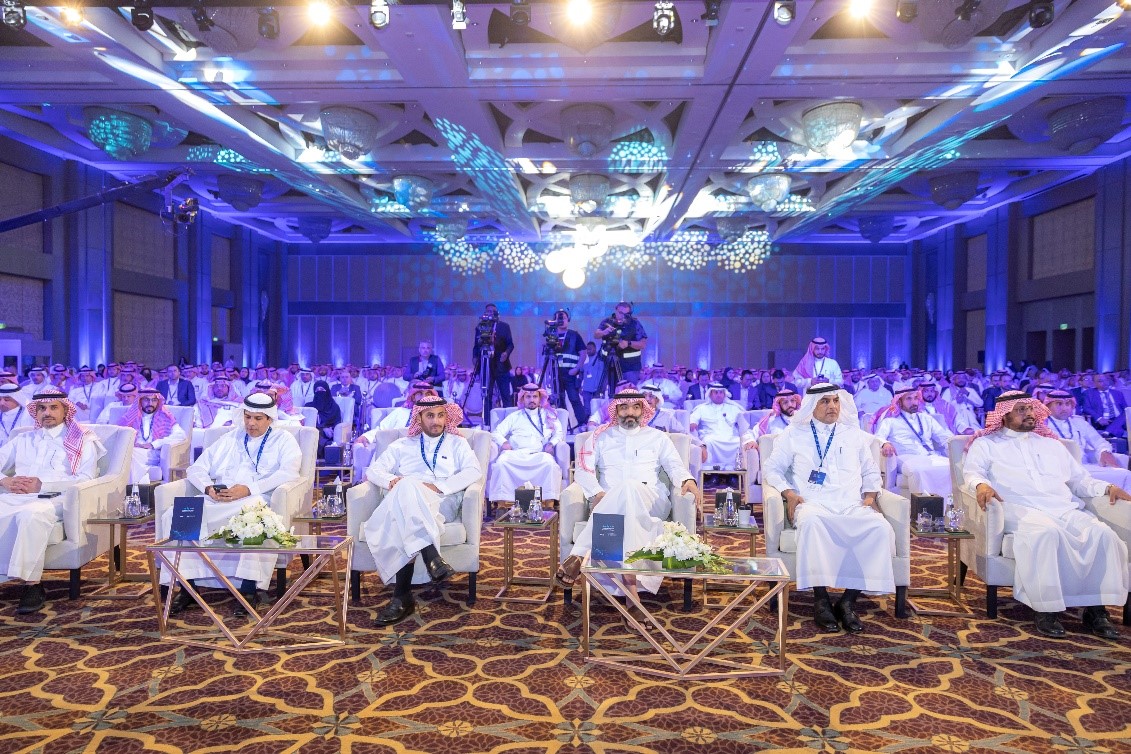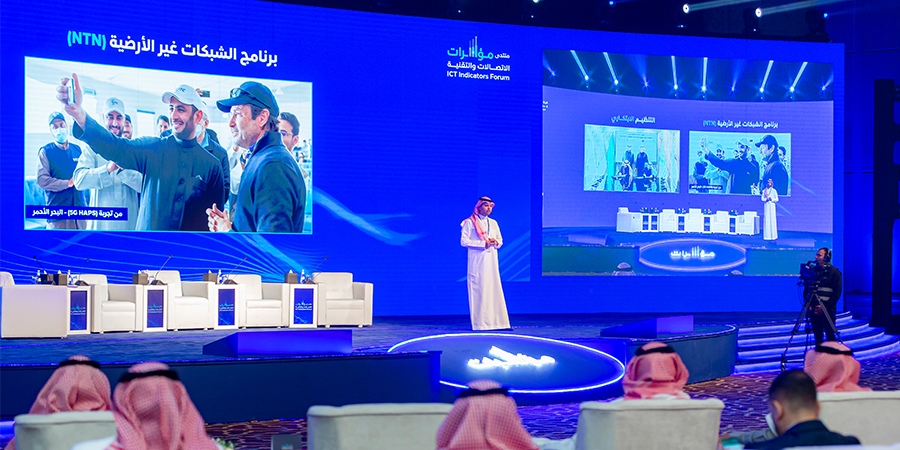Demonstrating the considerable impact of Saudi Arabia’s sweeping digital transformation efforts, the Kingdom’s ICT market is now the largest and fastest-growing in the Middle East and North Africa, having reached a total market size of SAR 154 billion in 2022.
This impressive growth indicator was among several to emerge from the 9th ICT Indicators Forum, held in Riyadh on March 8, 2023, and hosted by the Communications, Space and Technology Commission (CST) in partnership with market intelligence firm the International Data Corporation (IDC).
Uniting leaders and experts from across Saudi Arabia’s ICT landscape and held under the patronage of the Minister of Communications and Information Technology and Chairman of the CST, H.E. Eng. Abdullah Alswaha, the forum investigated topics related to digital regulation, opportunities to scale businesses in the digital economy and the sector’s future trends.

Saudi Internet Report Reveals Evolution of Digital Infrastructure
The forum also saw the disclosure of several key findings from the CST’s latest Saudi Internet Report, which revealed remarkable progress across digital infrastructure and internet usage on the back of successful government and private sector cooperation.
Total capital investment in digital infrastructure over the last six years exceeds SAR 93 billion, leading to a significant improvement in the quality of digital services on offer.
Addressing the forum, CST Deputy Governor, H.E. Eng. Omar Al-Rejraje, reported that an extension of the national roaming service in villages and remote areas has resulted in the successful deployment of high-speed internet in 21,000 villages across the Kingdom, ensuring the continuity of communication services for more than 5 million residents.
The 5G coverage rate has reached 53%, more than double the global average, with Riyadh becoming a leading global capital in 5G coverage, which now exceeds 94%.
Meanwhile, the delivery of high-speed fixed internet networks to the residential sector has doubled, bringing the total number of homes covered by fiber-optic cables to 3.7 million.
“This expansion in the readiness and robustness of the digital infrastructure, in addition to the allocation of frequency spectrum for communication services, has led to a significant increase in the quality of services provided,” Al-Rejraje told delegates.
This has been achieved by multiplying the speeds of mobile and fixed internet several times over. At 181 Mbps, the speed of mobile internet is now twice the global average, positioning the Kingdom among the top 10 countries for mobile internet speeds.
This acceleration in the penetration of digital infrastructure and services is echoed in the behavior of internet users, with the report revealing an increase in mobile cellular communications subscriptions to 172% of the population, exceeding the global average by 36%.
The average per capita consumption of mobile internet data in the Kingdom now exceeds 1,200 megabytes per day, amounting to three times the global daily rate.
Saudi Arabia on an Accelerated Path of Digital Prominence
Al-Rejraje further commented on a ‘remarkable’ market repositioning that took place in the sector in 2022, which saw an increase in the level of wholesale companies’ tower and FTTH ownership, a rise in company acquisitions and sizeable mergers of digital infrastructure.
“The total value of these transactions in 2022 alone exceeded SAR4.3 billion, three times more than the annual average in the previous four years, and were concentrated in the ownership of communication towers and FTTH network,” he noted.
This market repositioning is expected to contribute to increased future efficiency, improved competitiveness, the entry of new companies into the market and the development of additional innovative solutions.
These transactions have resulted in a peak in the HHI index of fixed communications since the privatization of the telecommunications sector, with an improvement of 10% in just one year.
Remarkably, all telecommunications companies listed in the financial market also achieved operating profits and net profits for the first time since 2009.
Collaborative Approach Key to Digital Strength
Much of these market gains can be attributed to the collaborative digital regulatory approach adopted by Saudi Arabia, with the CST working closely with partners in the public and private sectors to implement best practices within the digital regulatory environment.
This approach was observed in the commission’s recent enablement of new-generation technologies within non-terrestrial networks (NTN). Marking the first of its kind globally, the CST held an auction across the 2100 MHz band frequencies, allowing the provision of Mobile Satellite Services (MSS), Air-to-Ground Services (A2G) and Internet of Things via Satellite (MSS-IoT).
In addition, the CST is collaborating with the Transport General Authority and the National Regulations Committee to issue 12 approvals for 26 brands that provide connected vehicle services.
Through these wide-ranging measures to support the expansion and growth of the Kingdom’s digital economy, the CST has made clear its intention to incubate a flexible environment that balances innovation and regulation and thus supports entrepreneurs and innovators in a rapidly expanding digital market.
